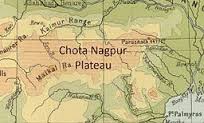 Ranchi: The Jharkhand governor Droupadi Murmu Thursday returned the controversial Chhotanagpur Tenancy Act (CNT) and Santhal Pragana Tenancy Act(SPT) in view of widespread violent agitation by tribals in the state.
Ranchi: The Jharkhand governor Droupadi Murmu Thursday returned the controversial Chhotanagpur Tenancy Act (CNT) and Santhal Pragana Tenancy Act(SPT) in view of widespread violent agitation by tribals in the state.
Tribals in the state were up in arms against the Raghubar Das government in Jharkhand in protest against the government’s move to amend the CNT and SPT acts. According to them the new law will dilute their rights over their land. They say that the law will give opportunities to big land sharks and corporate houses to grab the tribal land. The opposition Congress also staged a demonstration before the state assembly on Wednesday.
“This amendment aimed at grabbing the tribal land and selling it to corporate houses”, said Sanjay Basu Maullick of Jangal Bachao Andola, an NGO fighting against the government’s attempt to dilute the two tirbal interest acts.
The British government had enacted the two laws to protect the land rights of the tribals in Chhotanagpur and Santhal Pragana area of the erstwhile Bihar province. Birsa Munda, Tilka Manjhi and many other tribal leaders had sacrificed their lives to force the British government to enact the law.
The BJP government in the state, however, had passed bills in the house to amend the two acts had sent the same to for the governor’s approval.
The governor Murmu’s return of the Bill is considered to be a victory of tribals agitating against the government’s move.
“It is an egg on the face of the chief minister Raghubar Das,” said Congress spokesperson and former union minister RPN Singh. aid this happened after a protest of the Congress party at Ranchi Vidhan Sabha yesterday.
The government amended three sections and abolished one sub-section of the Chotanagpur Tenancy Act (CNT), while one section of Santhal Pargana Tenancy Act (SPT) has been amended.
Section 21 bars tribal land uses other than agriculture, construction of ponds, well and brick making. It has been amended empowering government to make rules for non-agriculture use of the agriculture land. For non-agriculture use of the land, a tax has to be paid that would be decided by the revenue officers.
Section 49 (1) has been amended to empower government to transfer tribal land for social welfare projects like hospital, schools, anganwadis (day care centres) and linear projects like pipelines, roads, etc. The cost of the transferred land shall not be less than the compensation fixed under the federal Land Acquisition Act.
Interestingly, the political courage of governor Draupadi Murmu has been hailed in Odisha, here native province. Known as timid tribal woman leader in Odisha, it was unthinkable in the state political circle that she would dare to return the Bills putting the BJP government in the state in utter embarrassment. However, people who know her as tribal activist say that she would risk her life when it comes to protect the tribal interests. Perhaps, Murmu wanted to remind Raghubar Das, a non-tribal chief minister in Jharkhard, that he is ruling a predominantly a tribal state.






